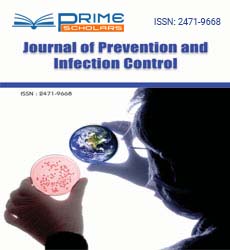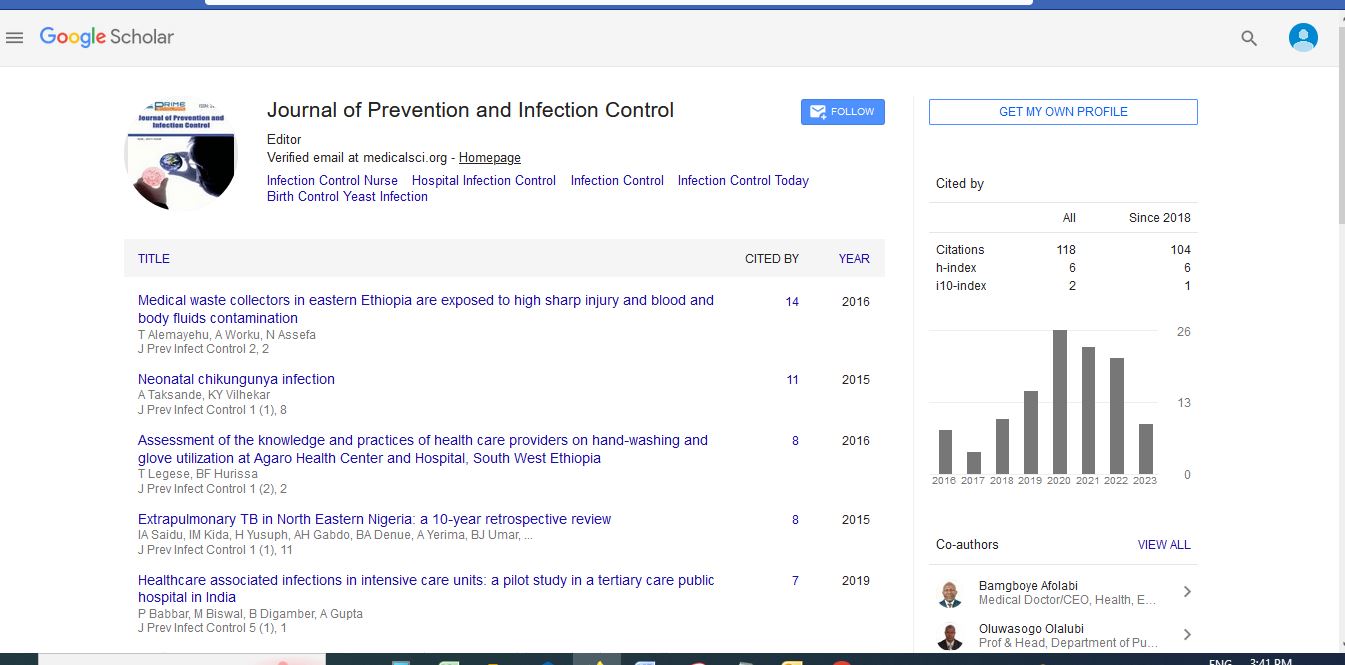Commentary - (2023) Volume 9, Issue 2
Infection Dynamics: From Pathogens to Pandemics
Stromy Ristado*
Department of Science, University of California, USA
*Correspondence:
Stromy Ristado,
Department of Science, University of California,
USA,
Email:
Received: 31-May-2023, Manuscript No. IPJPIC-23-17277;
Editor assigned: 02-Jun-2023, Pre QC No. IPJPIC-23-17277 (PQ);
Reviewed: 16-Jun-2023, QC No. IPJPIC-23-17277;
Revised: 21-Jun-2023, Manuscript No. IPJPIC-23-17277 (R);
Published:
28-Jun-2023, DOI: 10.36648/2471-9668-9.2.11
Description
Psoriasis is a chronic autoimmune skin disorder that affects millions
of people worldwide. Characterized by red, scaly patches
on the skin, psoriasis can have a significant impact on a person’s
physical and emotional well-being. In this article, we will delve
into the causes, symptoms, and various treatment options available
for this condition. Living with psoriasis can be challenging,
both physically and emotionally. The visible nature of the condition
can lead to self-esteem issues, social isolation, and even
depression. It’s important for individuals with psoriasis to build
a support system and seek professional help if needed. Joining
support groups, seeking therapy, and educating oneself about
the condition can make a significant difference in managing its
impact on mental health. Psoriasis is a complex and multifaceted
condition that requires a personalized approach to treatment
and management. With a deeper understanding of its
causes, triggers, and treatment options, individuals can work
with healthcare professionals to develop a comprehensive plan
that addresses both the physical and emotional aspects of living
with psoriasis. Ongoing research and advancements in medical
science continue to shed light on the mysteries of psoriasis, offering
hope for better management and improved quality of life for
those affected by this condition. Infections, although intangible,
are an integral part of human existence. They have shaped societies,
challenged medical science, and reminded us of the fragility
of life. Through understanding their causes, effects, and the strategies
to combat them, we equip ourselves with the knowledge
to minimize their impact and ensure a healthier future for generations
to come. As we navigate the dynamic landscape of infections,
science and solidarity stand as our allies in this ongoing
battle against the silent invaders. Throughout history, humanity
has developed methods to prevent and control infections. Vaccination
stands as one of the most powerful tools, bolstering the
immune system to recognize and combat pathogens. Hygiene
practices, from handwashing to clean water access, have significantly
reduced the prevalence of infections. Antibiotics and
antiviral drugs revolutionized medicine, but the rise of antibiotic-
resistant bacteria underscores the need for judicious use. Psoriasis
is primarily caused by an overactive immune system that
mistakenly targets healthy skin cells. This leads to an accelerated
growth cycle of skin cells, resulting in the buildup of thick, red,
and scaly patches known as plaques. The exact cause of the immune
system dysfunction is not fully understood, but genetics
and environmental factors play a crucial role. Family history is
a significant risk factor for developing psoriasis. Certain genetic
mutations have been linked to an increased susceptibility to the
condition. However, not everyone with a genetic predisposition
will develop psoriasis, indicating that environmental triggers also
play a pivotal role. Infections, caused by microorganisms ranging
from viruses and bacteria to fungi and parasites, have shaped
human history, spurred medical innovations, and challenged societies.
This composition delves into the multifaceted aspects of
infections, exploring their underlying causes, the mechanisms
through which they impact health, and the evolution of strategies
to combat their effects. Throughout history, infections have
shaped societies, influenced political landscapes, and spurred
medical advancements. This section provides a historical overview
of some of the most devastating infectious diseases, from
the Black Death to the Spanish flu. We examine how these outbreaks
influenced societal behaviors, healthcare practices, and
scientific research.
Acknowledgement
None.
Conflict Of Interest
None.
Citation: Ristado S (2023) Infection Dynamics: From Pathogens to Pandemics. J Prevent Infect Control. 9:11.
Copyright: © 2023 Ristado S. This is an open-access article distributed under the terms of the Creative Commons Attribution
License, which permits unrestricted use, distribution, and reproduction in any medium, provided the original author and source
are credited.

